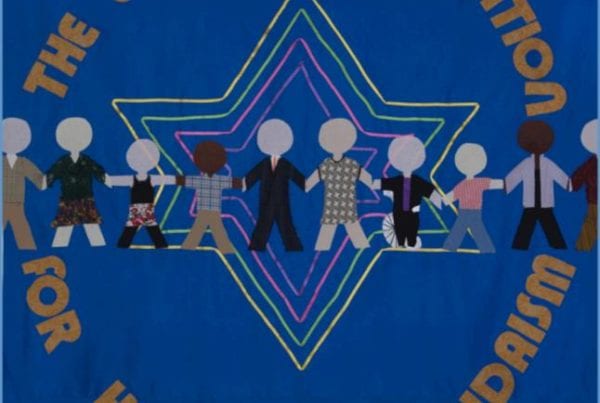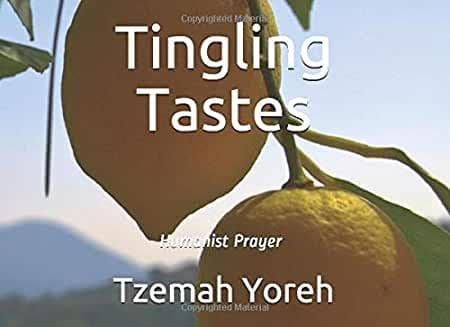“SEARCHING FOR WISDOM:
An Examination of The Book of Ecclesiastes”
Deborah Freeman
Yom Kippur 2007
I returned, and saw under the sun, that the race is not to the swift, nor the battle to the strong,… nor riches to the intelligent, nor favor to the skillful; but time and chance happen to them all.
I first read this striking passage from Ecclesiastes as a student at Brooklyn College, sitting in a creative writing class. All literature students were required to study the Bible and Shakespeare, if only to be able to identify the source of book titles. At the time, I read Ecclesiastes not as a book of faith, but as a post-modern poem, similar to the works of T.S. Eliot. I liked the bold style and disjointed passages. I skipped all the “God” allusions, assuming both the Bible and Eliot referred to God as a metaphor. It was only this summer, when Peter asked me to speak about Ecclesiastes, that I tried to come to terms with what the book says, rather than how it sounds.
Ecclesiastes is a Latinized version of the Hebrew word Qohelet, which means preacher or teacher. Ecclesiastes is attributed to Solomon, the tenth century BCE king who gained a reputation as Israel’s wealthiest and wisest king. Based on language and other reasons, most modern scholars agree that it couldn’t have actually been written by Solomon, but that scarcely matters. Solomon is the perfect spokesman because he could pursue the search for the ultimate meaning of life, unencumbered by financial or any other limitations.
Ecclesiastes begins by stating
Vanity of vanities! All is vanity.
All things are wearisome; more than one can express; the eye is not satisfied with seeing, or the ear filled with hearing.
What has been is what will be, and what has been done is what will be done; there is nothing new under the sun.
The people of long ago are not remembered, nor will there be any remembrance of people yet to come by those who come after them.
Well this certainly doesn’t pull any punches.
For the fate of humans and the fate of animals is the same; as one dies, so dies the other.
At first reading, this might seem cheerless and depressing. One reference book I consulted says that it’s a very un-Jewish book, and that Ecclesiastes is so relentlessly pessimistic that many rabbis originally opposed its inclusion in the Bible. I hate to be contrary, but I think that it’s kind of bracing to face reality undeluded, without flinching. It seems appropriate for many reasons to quote Sherwin Wine, whom Peter memorialized last night. Sherwin wrote that “realistic living is the courage to acknowledge the truth, even when it is painful.” With this in mind, Ecclesiastes is a real antidote to sentimentality.
With his unlimited power and great wealth, the narrator of Ecclesiastes has a unique vantage point. He describes, in hilarious detail, his very privileged life. I made great works; I built houses and planted vineyards for myself. I also gathered for myself silver and gold and the treasures of kings; I got singers, both men and women, and delights of the flesh and many concubines. But ultimately, he tells us, he found all these pursuits futile. I might note that he certainly denied himself no pleasures in his search for meaning, and his action-filled life is a lot of fun to read about.
He ponders the riddles of life and acknowledges that life is often unfair.
In my vain life I have seen everything; there are righteous people who perish in their righteousness, and there are wicked people who prolong their life in their evildoing.
And he urges us to accept our own human limitations.
No one has power over the wind to restrain the wind or power over the day of death.
However, I think the author isn’t depressed so much as realistic. He claims it’s better not to have been born, but he never considers suicide or even withdrawing from an active life. He’s always trying new things, and he urges us all to do the same.
So I commend enjoyment, for there is nothing better for people under the sun than to eat, and drink, and enjoy themselves.
Ecclesiastes sees no contradiction between acknowledging that life has no ultimate meaning, and appreciating that life should be enjoyed.
But whoever is joined with all the living has hope, for a living dog is better than a dead lion.
Near the close of the biblical story, Ecclesiastes grows reflective. He looks both forward and backward over his life, anticipating how he will feel about his younger days when he himself becomes old.
Remember your creator in the days of your youth, before the days of trouble come, and the years draw near when you will say, ‘I have no pleasure in them.’
Mysteriously, symbolically, he evokes the sorrows of old age, ending with the silver cord of life snapped, the golden bowl of existence broken, the dust returned to the earth. He urges us to think ahead to the end of our own life and, conscious of its brevity, to conduct our lives with wisdom and dignity.
I spoke about Solomon being the narrator of this book because Jewish tradition considers Solomon the wisest of men. The book of Job, the book of Proverbs, and Ecclesiastes are usually included in a category called wisdom literature. These wisdom books are very different from other parts of the Bible that offer the perspectives of lived prophecy and the national history of the Jewish nation. Wisdom literature is related to sages and teachers of the young, who traditionally mingled practical teaching for a successful life with astrological advice.
This brings me to a fundamental question: What is wisdom? Wisdom is usually defined as common sense or good judgment, as distinguished from just being smart. Wisdom has traditionally been the province of philosophy and religion, but a recent article in the New York Times magazine described how psychologists are trying, with great difficulty, to define wisdom and to develop tests to measure it. A typical group developed a three-dimensional wisdom scale to integrate cognitive, reflective and emotional ways of dealing with the world. All the groups studying wisdom agreed on one thing: it’s a very rare quality.
When asked to name who they think is wise, many people mention public figures such as Gandhi, Martin Luther King Jr., Nelson Mandela and Mother Teresa. Just as frequently, people mention relatives, friends, people whose wisdom is only known to a small group of acquaintances.
On my short list of wise people, the person I have consulted the most, both in person and, for the past ten years, in memory only, is my mother. As I get older, I find myself thinking about her more often and trying to rememer not just the things she said but her thought processes and approaches to problems of life and of aging. Her most famous quote in my family is she always said if she had a choice between cleaning the house and reading a book, she would always pick the book. After all, the house will just get dirty again, but you’ll always have what you learned from the book. My husband wishes I would stop quoting this already.
I’ll tell you another story about my mother. When I was 21, I got a summer job for the telephone company compiling statistics on how many calls per hour an operator could handle. It was a well paying job, but I impetuously quit it after three weeks when I got an offer to go to Mexico City to star in a student movie that a friend planned to make. I was excited about the trip, but I worried about my future. What if I was never able to keep a job? My mother pointed out, reassuringly, that if this job lasted three weeks, perhaps my next job would last six weeks. By the way, the movie never got made, but I rely on this story, and on my mother’s reasoning, to give me some perspective now that my daughter is the same age I was then.
So I guess we turn to wisdom literature and to wise people, maybe not to “learn” wisdom the way you learn French, but to be exposed to it and to be comforted by it. And reading Ecclesiastes is certainly comforting. I’ve been quoting a lot of passages that people may not be familiar with, so I’d like to end with this more familiar passage that reminds us, as we say in our service, when we recite the Kiddush over the wine, that life is a mixture of both joy and sorrow and that we need to accept both in order to affirm all of life.
For everything there is a season, and a time for every matter under heaven:
a time to be born, and a time to die;
a time to plant, and a time to pluck up what is planted;
a time to kill, and a time to heal;
a time to break down, and a time to build up;
a time to weep, and a time to laugh;
a time to mourn, and a time to dance.



